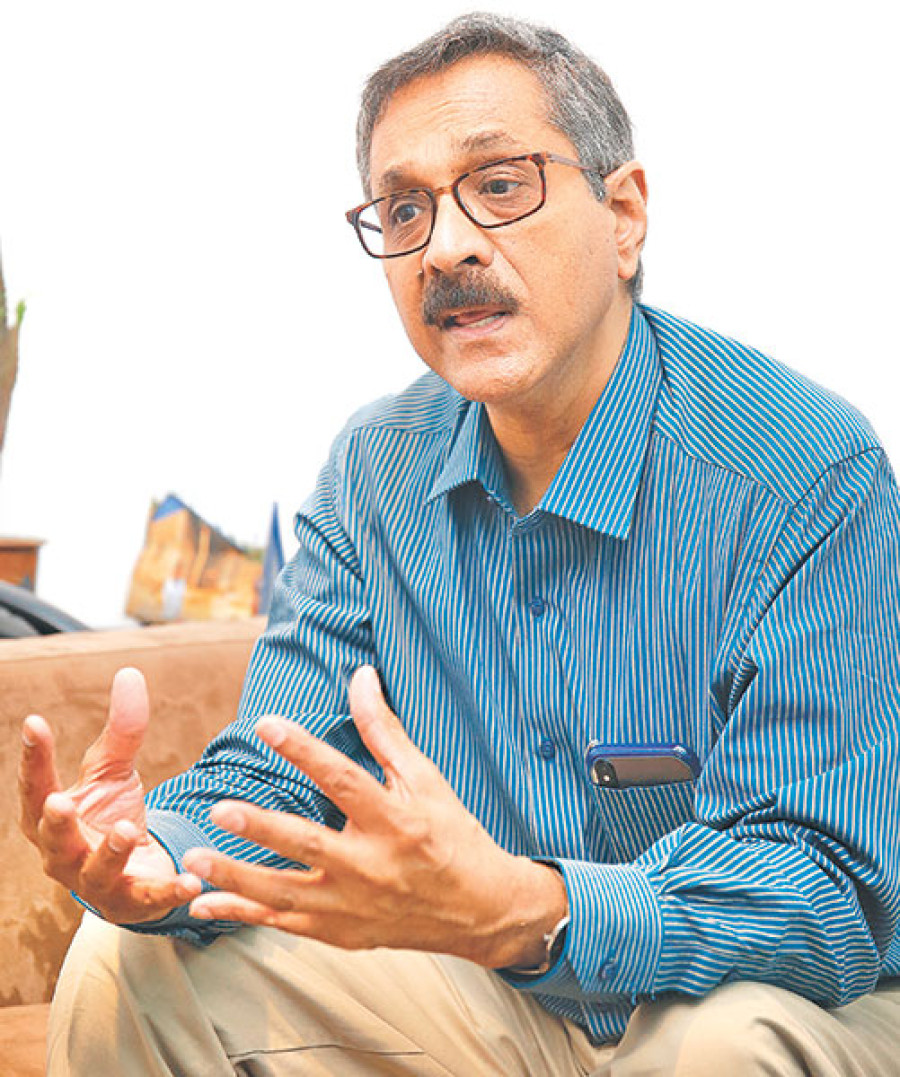Money
‘Nepal a land of opportunity’
Senior Partner and Global Vice-President of Research, Shekar Gopalan at Frost and Sullivan.
Senior Partner and Global Vice-President of Research, Shekar Gopalan at Frost and Sullivan.
It has been just over two years since global consulting firm Frost and Sullivan began operations in Nepal. The company sees huge potential in implementing internet based technology to boost companies’ efficiency and productivity. The Kathmandu Post sat down with Senior Partner and Global Vice-President of Research, Shekar Gopalan at Frost and Sullivan to talk about the business environment in Nepal and the impact of internet on Nepali firms:
How has the business sector in Nepal responded to adaption of new technologies?
We are now working in partnership with around 100 companies in Nepal. The commercial sectors here are eager to adopt new technology as it helps them to bring down their costs and boost their competitiveness. The ‘Internet of Things’ boosts everything from networked physical devices, vehicles, home appliances and other items embedded with electronics, software, sensors and connectivity as these objects are able to connect to one another and exchange data. For example, telecommunication companies have expressed their interest in adopting new technologies and its potential is expanding to other sectors including public services.
Most of the time firms are reluctant to implement advanced technology, citing high costs. What is your view in this regard?
The technology is proven to help bring down costs and offers firms who deploy the tech to be a part of the global business ecosystem. This is a huge attraction for firms. Another way to encourage adoption of the tech is partnership on revenue sharing basis to manage the costs and to ensure sustainable business.
Frost and Sullivan has been pitching for Industrial Internet of Things (IIoT). What are the implications of IIoT?
It offers comprehensive connectivity in production plants and power stations. The system will allow for predictive maintenance which allows firms to solve problems before a failure compared to the traditional repair system where it takes time for the problem to build up before causing delays.
What challenges do you see in getting the entire Nepalese commercial sector to adopt the technology?
One of the main issues is the lack of skilled manpower. Another is the inadequate infrastructure that can hamper the adoption of such technology. Video data and high bandwidth connectivity is essential to implement IIoT.
What is the attraction for a global consulting firm like Frost and Sullivan to enter a relatively small market like Nepal?
There is tremendous business opportunity in countries that are on the precipice of economic development. Nepal is one of those countries that have huge potential for economic growth. With a large youth population, Nepal is able to create a talent pool that can sustain economic growth. Combined with the implementation of federal system, Nepal is undergoing structural changes. In addition, the service sector is growing rapidly in the country. This means that Nepal is a land of opportunity.
What is Frost and Sullivan’s aim in Nepal ?
We wish to help Nepali companies to become more competitive by providing them access to partnerships with multinational companies. Frost and Sullivan expects to build up connectivity for local firms in the global business ecosystem. We are looking to create a pool of skilled youth and help in building up related infrastructure. We have targeted to connect the local talent pool to global community of analysts.




 9.7°C Kathmandu
9.7°C Kathmandu














